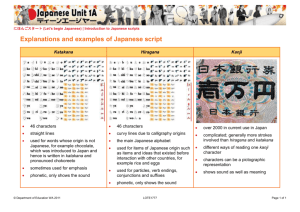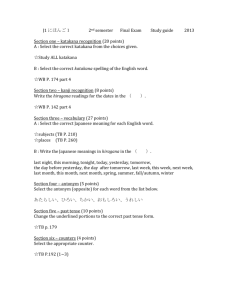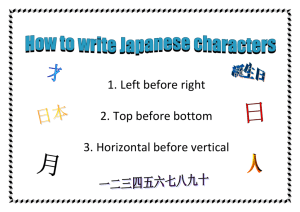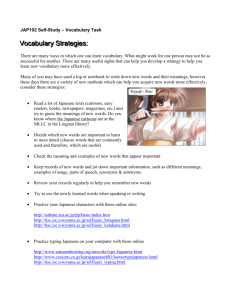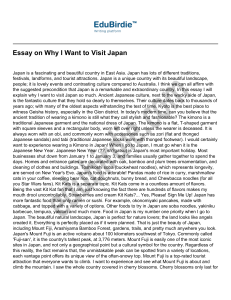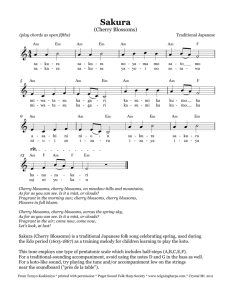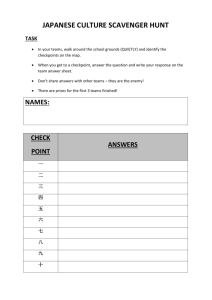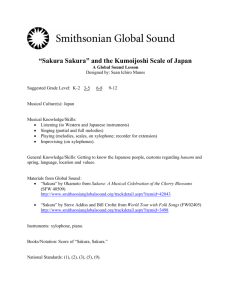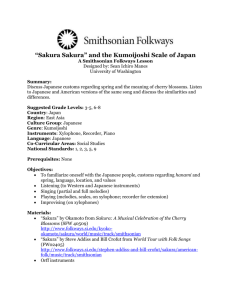April, 2013 - Suzuki Myers & Associates
advertisement
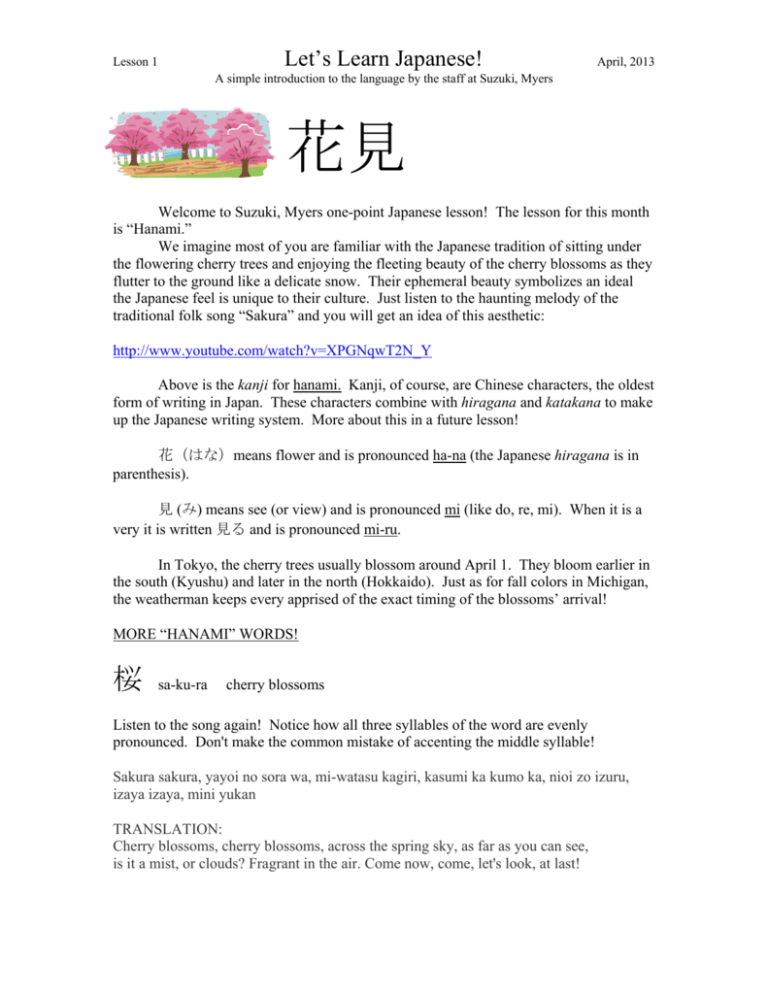
Let’s Learn Japanese! Lesson 1 April, 2013 A simple introduction to the language by the staff at Suzuki, Myers 花見 Welcome to Suzuki, Myers one-point Japanese lesson! The lesson for this month is “Hanami.” We imagine most of you are familiar with the Japanese tradition of sitting under the flowering cherry trees and enjoying the fleeting beauty of the cherry blossoms as they flutter to the ground like a delicate snow. Their ephemeral beauty symbolizes an ideal the Japanese feel is unique to their culture. Just listen to the haunting melody of the traditional folk song “Sakura” and you will get an idea of this aesthetic: http://www.youtube.com/watch?v=XPGNqwT2N_Y Above is the kanji for hanami. Kanji, of course, are Chinese characters, the oldest form of writing in Japan. These characters combine with hiragana and katakana to make up the Japanese writing system. More about this in a future lesson! 花(はな)means flower and is pronounced ha-na (the Japanese hiragana is in parenthesis). 見 (み) means see (or view) and is pronounced mi (like do, re, mi). When it is a very it is written 見る and is pronounced mi-ru. In Tokyo, the cherry trees usually blossom around April 1. They bloom earlier in the south (Kyushu) and later in the north (Hokkaido). Just as for fall colors in Michigan, the weatherman keeps every apprised of the exact timing of the blossoms’ arrival! MORE “HANAMI” WORDS! 桜 sa-ku-ra cherry blossoms Listen to the song again! Notice how all three syllables of the word are evenly pronounced. Don't make the common mistake of accenting the middle syllable! Sakura sakura, yayoi no sora wa, mi-watasu kagiri, kasumi ka kumo ka, nioi zo izuru, izaya izaya, mini yukan TRANSLATION: Cherry blossoms, cherry blossoms, across the spring sky, as far as you can see, is it a mist, or clouds? Fragrant in the air. Come now, come, let's look, at last! Let’s Learn Japanese! Lesson 1 April, 2013 A simple introduction to the language by the staff at Suzuki, Myers 桜前線 sa-ku-ra zen-sen. Zen-sen means “front line”. Like a cold front (kan-rei zen-sen) or a warm front (on-dan zen-sen), sakura zensen is a weather report topic. 飲み会 no-mi kai = drinking party. A little sake takes the rough edges off our day-to-day lives, allowing us to float along with the floating flower petals. 弁当 ben-to = lunch box. Go to the Japanese market and purchase a bento. Sit under one of the cherry trees that were planted in front of the Novi City Hall last year. The trees were a gift from the Japanese government. Let’s hope the bloom this first year after they were translplanted! ダンゴ dan-go … a picture is worth a thousand words! (They are made from rice.) The letters are katakana which is sometimes used for foreign words. Here it is used for a word that is sometimes written in kanji, but katakana seems to be more popular. We hope you have enjoyed our first Japanese lesson. Your feedback is welcome! office@suzukimyers.com
